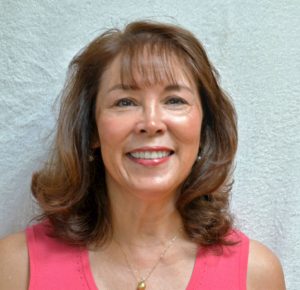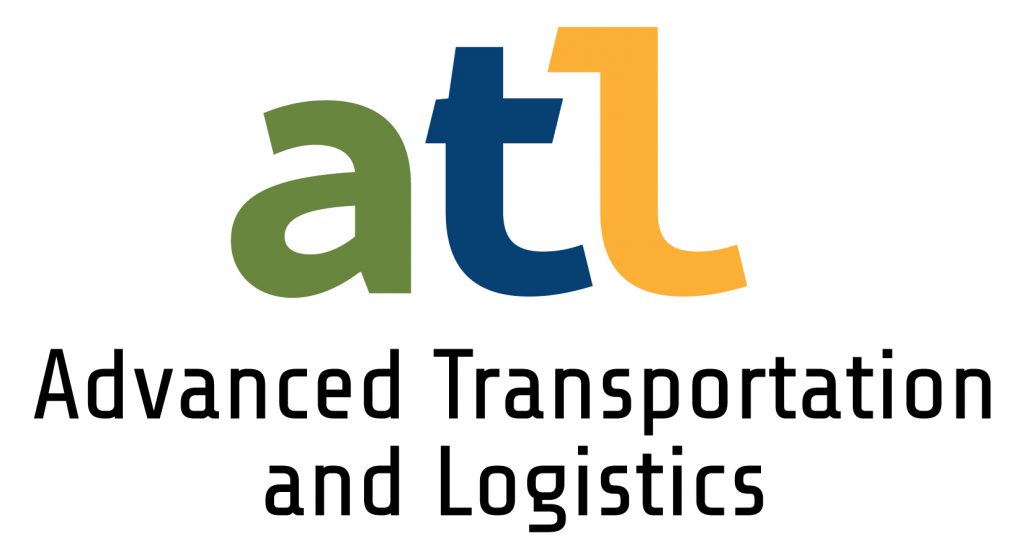 Pamela Gutman, ATL Regional Director in the Bay Region was interviewed by the Centers of Excellence to share the status of Advanced Transportation & Logistics in the Bay Region, including employers that are hiring, occupations in demand, and strategies the sector is taking to help train students or re-train workers.
Pamela Gutman, ATL Regional Director in the Bay Region was interviewed by the Centers of Excellence to share the status of Advanced Transportation & Logistics in the Bay Region, including employers that are hiring, occupations in demand, and strategies the sector is taking to help train students or re-train workers.
What is the status of Advanced Transportation & Logistics in the Bay Region right now?
Transportation has been hard hit, especially in the early months of the COVID pandemic. While things seemed to get better in July, August was disappointing as COVID cases began to surge again.
Automotive: Uncertainty and volatility characterize the responses of many in the industry: “It’s a nightmare.” Automotive repair is deemed an ‘essential service,’ so mechanics are the last to be laid off. Dealerships closed all non-essential business areas and laid off an estimated 45-60% of their employees. Many independent shops laid off everyone except the owner and 1 employee, while some closed. New and used car sales began to pick back up in June as people returned to work and deliberately avoided using public transportation. Recovery is being assessed month-to-month, driven by COVID conditions.
Initially, many of the layoffs were considered temporary. But not all employees are being hired back and expectations are that the industry may contract. Some employers are slowly re-hiring, waiting for the economy to re-build. Others are using this time ‘to prune’ workers and keep ‘just the best.’ By October, dealerships were reporting that they were operating at about 75% of pre-COVID levels.
Hiring our students: Companies are reporting losses. They will have fewer resources for internships and slow to hire. Our students will be facing a much different employment outlook. It’s not the job rich environment that it has been in recent years. Students and new graduates will be competing against skilled, experienced auto technicians, and without hands-on training they may be hired only for more entry level lube tech positions. Students can help to differentiate themselves with higher level skills (e.g. computer skills, Advanced Driver Assistance Systems (ADAS), Electric Vehicles (EV)).
One employer, Del Grande Dealer Group (DGDG), advised: “Tell your students to stay in school and increase their IT skills and electrical skills.” DGDG will hire our students over experienced technicians if they have IT and electrical competencies.
Aviation has also been hit hard by the pandemic. Air traffic fell by 90% during March-May because of COVID-19 and has recovered to about 30% load levels. The U.S. government provided airlines $25 billion, under the broad economic stimulus bill in March 2020 that protected airline workers’ jobs through September 2020.
American Airlines plans to permanently lay off 19,000 workers in October. Combined with retirements and leaves of absence, the airline will be 30% smaller than it was in March 2020. Employment reductions include 17,500 furloughs of pilots, flight attendants, mechanics and 1,500 cuts from management and administrative ranks. Delta plans to furlough 1,941 pilots and reports that revenues are at 25% of last year’s levels. United Airlines has notified 36,000 workers globally that their jobs are at risk. Southwest Airlines negotiated early retirements and voluntary departures of thousands of workers and hopes to avoid more layoffs. Alaska Air, JetBlue, and Spirit hope to avoid laying off pilots.
Airlines had hoped there would be a “V”-shaped recovery and summer would increase business and passenger trips. Unfortunately, COVID has continued to spread and governments have restricted global travel routes. The regular Fall corporate travel ramp up has not occurred. Airlines don’t expect for loads to hit 50% until a new efficacious vaccine is widely available. Recovery to 2019 load and revenue levels are not expected for 4-5 years.
What employers (or types of employers) are hiring right now? What occupations are in demand?
In Aviation very few employers are hiring. Airlines are still operating at around 30% levels and there has not been a second economic stimulus package from Congress as the industry hoped. The airlines did notify those who were at risk to be laid off and some of the layoffs are occurring. Pilots and technicians have ‘protected status’ since there was a shortage for these positions. Outlook: Some regional airlines are picking up a few select pilots and technicians.
In Automotive employers are very cautious about hiring. Most are re-hiring the best of the service technicians that they laid off. Most are only operating at between 65%-75% pre-COVID levels. A number of the small, independent garages will not re-open. People are driving more, so automotive will recover more quickly than aviation but will not return to profitability for another 2-3 years, and resources for our students will be thin.
In Logistics entry level warehouse employees are very much in demand, leading employers to increase their wages above the minimum wage to $18 an hour. Nationwide, consumers are staying home, and purchasing now occurs mainly online with fulfillment from large warehouse centers. Consequently, there is a lot of pressure on employees to fulfill orders within minimum time ranges. Working conditions are reportedly in need of improvement.
What are some strategies the Advanced Transportation & Logistics sector is taking to help train students or re-train workers?
We are meeting with our industry partners to keep current on their recovery plans and hiring needs. Our faculty is also in contact with their Advisory Board Partners and tracking possible new hiring needs with them.
We have met with various workforce boards to identify jobs and employers for those who have been laid off. The Oakland Workforce Board had a job fair for auto and aviation mechanics on September 25th. We also provided a list of companies who are hiring in the region.
We are also brainstorming possible alternative jobs and pathways for our students – jobs that utilize their skills in maintenance and repair and allow them to earn a good living during the current recession (e.g., elevator repair, micro mobility repair such as for E-Bikes and Scooters).
Can you tell us about some projects you are working on with schools/colleges?
ADAS Faculty Training for Community Colleges and High Schools
One of ATL’s SWP funded, Regional Joint Venture Projects in Automotive is NextGen AutoTech which focuses on providing auto faculty with exposure to and training in semi-autonomous, advanced electrical technologies. As part of that project, we transitioned in-person Advanced Driver Assistance Systems (ADAS) training that was cancelled because of the pandemic to online training. These online trainings were held every Friday afternoon in June 2020 through August 2020. Kurt Shadbolt, Auto faculty at Chabot College, developed and taught the ADAS classes based on materials provided by our industry partners, BOSCH and SUBARU. An average of 50 faculty participated weekly, including 11 Bay Area high school faculty and six from Southern California.
The response to the training was very positive. Several commented that they felt Kurt was also teaching a ‘master’s class’ in how to teach online. Faculty received training certifications which will meet their Automotive Service Excellence (ASE) certification requirements. Many of the faculty are now embedding the ADAS modules in their auto classes and using SWP funds to buy ADAS equipment. Kurt also developed new ADAS curriculum that is currently going through local curriculum approval. Once approved, this new ADAS curriculum will be shared regionally. These classes were recorded and are available on our ATL website.
Increased Collaboration between High Schools and Community Colleges
Because of the ADAS training, 10-12 high school faculty were trained in ADAS technologies. In addition to learning the new ADAS technologies, these Friday afternoon sessions also allowed faculty to share and network with each other. A couple of the high school faculty went back to their principals with new ideas for their programs and suggestions on how to more closely align with their local Community College auto program, including better articulation and possible dual enrollment opportunities.
The faculty at Mission Valley Regional Occupational Program (ROP) (which is comprised of 3 high schools: Logan, Kennedy and Washington) have already modified their auto curriculum to include some of Kurt’s ADAS modules for next semester. They also have a SWP K-14 grant to build up their EV capabilities and will work with their Advisory Board to buy appropriate ADAS equipment and EV vehicles.
Independence High School in San Jose is also interested in discussing dual enrollment in ADAS with Evergreen Valley College.
Automotive Regional Marketing
I am also in the middle of a regional marketing and communications project for automotive whose objectives are to: 1) build awareness of the advanced technologies being taught at our 14 Community College Auto Programs, 2) build awareness of new automotive careers, 3) increase enrollment, and 4) increase equity and diversity. Videos will be produced and aired on social media, and materials for each of the 14 colleges will be customized.
We also have a number of upcoming Community of Practice webinars for automotive:
November 12 – A presentation on the new and exciting Vehicle to the Grid Integration project at Santa Clara Valley Transportation Authority (SCVTA). This complex, cross-discipline project, sponsored by the California Energy Commission, will take faculty through their process of how they are introducing electric buses to the SCVTA and preparing their infrastructure to charge the buses and recycle stored electric energy to lower their electric costs. They will close with a discussion of the new, cross discipline jobs and skills sets required for the new Electrified VTA.
November 13 and 20 – Mike McConnell of Tesla will teach a course on Tesla Vehicles and Incident Response — High Voltage EV Training on Tesla cars.
Next Semester:
- ADAS Calibration Training: Hopefully taught in-person at Chabot by Kurt Shadbolt
- Advanced Vehicle BUS Networks: Hopefully in-person at Chabot by Mike Sherburne
- Heavy Duty Electric Training for College of Alameda, Hartnell and SRJC and training for incumbent technicians and school district fleet technicians


